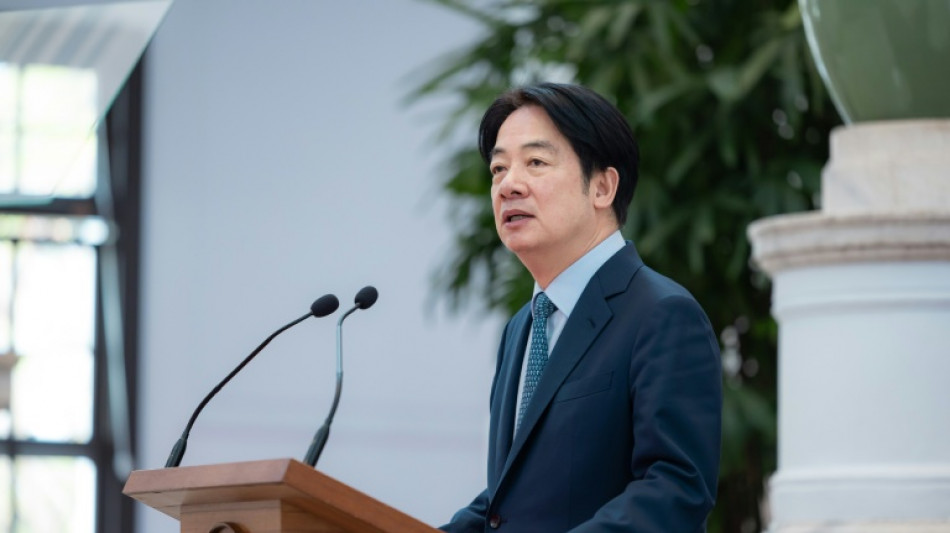
-
 SFWJ / Medcana Announces Strategic Expansion Into Australia With Acquisition of Cannabis Import and Distribution Licenses
SFWJ / Medcana Announces Strategic Expansion Into Australia With Acquisition of Cannabis Import and Distribution Licenses
-
Heavy spring snow storm wreaks havoc in the Alps

-
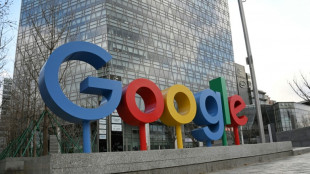 US judge rules against Google in online ad tech antitrust case
US judge rules against Google in online ad tech antitrust case
-
Andreeva knocked out by Alexandrova in Stuttgart last 16

-
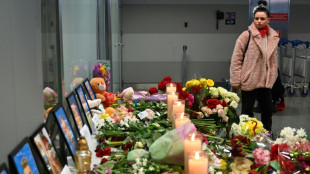 Iran challenges four countries in UN court over jet it downed in 2020
Iran challenges four countries in UN court over jet it downed in 2020
-
'Not at 50' - Alonso sets retirement limit

-
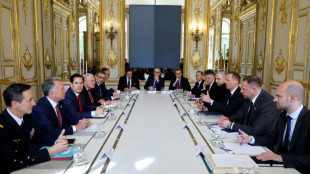 Macron praises US-European-Ukraine talks as 'important occasion for convergence'
Macron praises US-European-Ukraine talks as 'important occasion for convergence'
-
Verstappen dismisses Red Bull exit fears

-
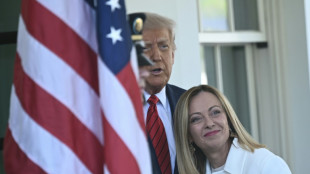 Italy's Meloni, Trump talk up EU trade deal hopes
Italy's Meloni, Trump talk up EU trade deal hopes
-
'Slow but steady' progress for Martin after Qatar MotoGP crash

-
 Pogacar-Van der Poel duel inspires Evenepoel comeback
Pogacar-Van der Poel duel inspires Evenepoel comeback
-
US judge rules Google monopolized online ad tech market
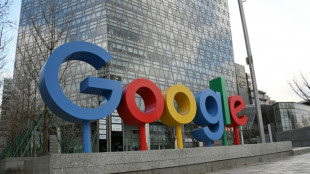
-
 Bearman back at 'special' debut-track Jeddah
Bearman back at 'special' debut-track Jeddah
-
Swiss watch exports to US soared ahead of Trump tariffs

-
 Alcaraz finds best to reach Barcelona Open quarters
Alcaraz finds best to reach Barcelona Open quarters
-
Where are all the aliens?: Fermi's Paradox explained

-
 France full-back Dulin to retire at end of season
France full-back Dulin to retire at end of season
-
World economy likely to avoid recession despite tariffs: IMF chief
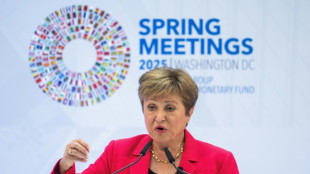
-
 57 killed in Sudan's Darfur as trapped civilians fear bloodbath
57 killed in Sudan's Darfur as trapped civilians fear bloodbath
-
Vietnam ups wind, solar targets as energy demand soars

-
 Pope says doing 'best he can' on jail visit before Easter
Pope says doing 'best he can' on jail visit before Easter
-
China's Xi meets Cambodian leader as part of regional diplomatic blitz
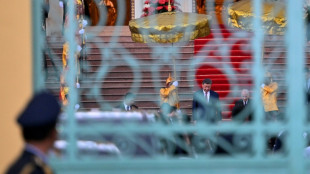
-
 Ukrainian tennis player seeks legal justice over 'moral abuse'
Ukrainian tennis player seeks legal justice over 'moral abuse'
-
Italy's Meloni seeks EU tariff deal from Trump
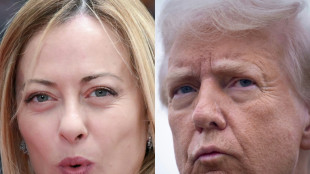
-
 France's feminist icon Pelicot to sue Paris Match for privacy invasion
France's feminist icon Pelicot to sue Paris Match for privacy invasion
-
World economy should avoid recession despite tariffs, IMF chief says

-
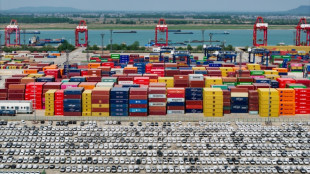 Stocks waver as ECB cuts rate, Trump slams Fed chief
Stocks waver as ECB cuts rate, Trump slams Fed chief
-
France, UK mull migrant swaps in bid to stem Channel crossings

-
 Nuno says Forest still in control of Champions League chase
Nuno says Forest still in control of Champions League chase
-
Malinin, Liu help US take early lead at skating's World Team Trophy

-
 Clashes in Sudan's besieged Darfur city kill 57
Clashes in Sudan's besieged Darfur city kill 57
-
Kyiv's Europe allies seek influence with US in Paris talks
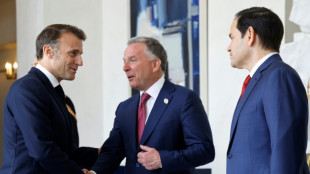
-
 Russia scraps Taliban's 'terror' label amid warming ties
Russia scraps Taliban's 'terror' label amid warming ties
-
Trump says Fed chief's 'termination cannot come fast enough'
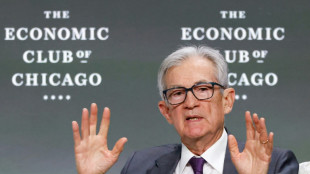
-
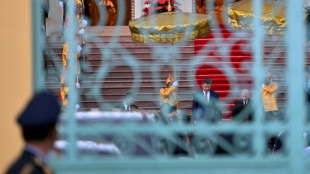 China's Xi, seeking to build regional ties, meets Cambodian leader
China's Xi, seeking to build regional ties, meets Cambodian leader
-
ECB cuts rates as Trump tariffs raise fears for eurozone growth
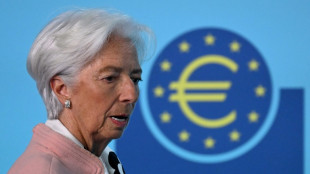
-
 Etzebeth returns to Sharks lineup after concussion absence
Etzebeth returns to Sharks lineup after concussion absence
-
Gaza rescuers say 40 mostly displaced people killed in Israeli strikes

-
 N.Ireland designer Jonathan Anderson takes helm at Dior Men
N.Ireland designer Jonathan Anderson takes helm at Dior Men
-
Turkish central bank raises interest rate to 46 percent
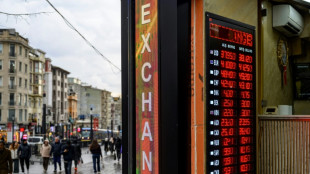
-
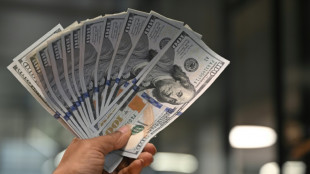 Trump's tariff storm a threat to dollar's dominance?
Trump's tariff storm a threat to dollar's dominance?
-
Bayern forced to watch on as home final dream 'shattered'

-
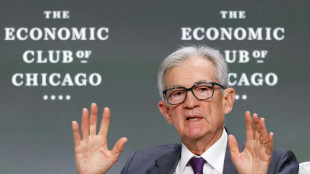 Trump clashes with Fed chief Powell over interest rates
Trump clashes with Fed chief Powell over interest rates
-
UK mulls impact of landmark gender ruling

-
 'Help us,' says wife of Gaza medic missing since ambulance attack
'Help us,' says wife of Gaza medic missing since ambulance attack
-
Stocks diverge as ECB rate cut looms, Trump tussles with Fed
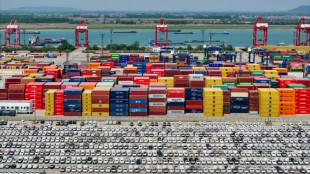
-
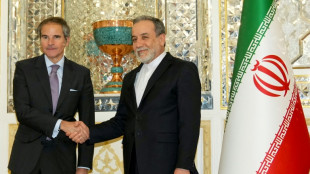 UN nuclear chief says Iran, US running out of time to secure deal
UN nuclear chief says Iran, US running out of time to secure deal
-
Somalia air strikes, combat kill dozens of jihadists: govt

-
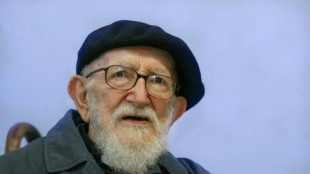 Book claims Vatican knew French charity icon accused of abuse from 1950s
Book claims Vatican knew French charity icon accused of abuse from 1950s
-
Afrobeats star Davido sees Nigeria's star rising


Taiwan exporters count the cost of Trump's 'ridiculous' tariffs
Taiwanese exporters are crunching numbers and talking to American clients as they scramble to figure out how to respond to US President Donald Trump's tariff blitz that threatens to derail their businesses.
While the final impact is not yet known, factory owners on the island are clear eyed on one thing: moving operations to the United States is easier said than done.
"Taiwan's structure is what makes this industry viable," the owner of a machine tool exporter told AFP on the condition of anonymity, highlighting the island's network of small and medium-sized factories supplying his company.
"There are so many components, like gears, belts and others -- the US doesn't have these industries. Setting up a factory in the US would not be worth it," he said, describing Trump's policy as "ridiculous".
From Wednesday, Taiwanese products shipped to the United States, including electronics, machinery components, auto parts and bicycles, will be hit with a hefty 32 percent levy.
It is part of Trump's far-reaching global tariffs that have rocked world markets and sparked recession fears, as he seeks to reduce the US trade deficit and push companies to shift manufacturing to American soil.
Many in Taiwan were stunned by the size of the duty, after chipmaking titan Taiwan Semiconductor Manufacturing Co's plan to invest an additional $100 billion in the United States raised hopes the island would be spared.
While chips have so far avoided tariffs, analysts have warned the critical sector could be impacted anyway as levies drive up the cost of iPhones, laptops and other technology, and reduce consumer demand.
- 'Unsophisticated understanding' -
Taiwanese companies have spent days calculating the impact on their operations and speaking to US clients about how to absorb the cost of the new tariff.
"They've been receiving a lot of calls or instructions," said Kristy Hsu, director of the Taiwan ASEAN Studies Center at Chung-Hua Institution for Economic Research.
She told AFP that US customers have requested deliveries be postponed or prices lowered.
Companies were also trying to determine if their products contained at least 20 percent "American content", which could partially shield them from Trump's levy, she added.
During Trump's first term in office, US tariffs against China prompted many Taiwanese companies operating there to relocate to Southeast Asia to avoid the tax.
This time, however, there are fewer places to hide.
Trump has slugged imports from Vietnam and Thailand with 46 percent and 36 percent tariffs, respectively, and there was uncertainty about whether duties could be cut or raised even higher.
"Right now, the only option for setting up factories overseas is the United States, but the cost of doing so is extremely high," an official from an electronic industry group told AFP.
"This truly isn't something that can be done easily," she said, adding "we didn't expect the US would come down this hard."
Trump's across-the-board tariffs revealed an "unsophisticated understanding" of how supply chains worked, said Ho Ming-yen, non-resident fellow of the Research Institute for Democracy, Society and Emerging Technology.
- Levy 'impossible to absorb' -
Even if companies shifted their factories to the United States, they would still be slugged with tariffs on imported components needed for their products, Ho said.
Ho expected most Taiwanese companies would likely take a "wait-and-see" approach and cut costs as they "wait for the calamities to end".
Taiwan President Lai Ching-te said he had no plans for "retaliatory tariffs" against the United States, the island's most important security partner.
The government has pledged US$2.7 billion to help affected industries, but that was a "drop in the ocean" for what was needed, said Jason Hsu, senior fellow at the Hudson Institute think-tank.
Hsu estimated tariffs would cost Taiwanese exporters US$15 billion-US$20 billion a year.
To secure any relief from Trump, Taiwan needed to come up with deals for the president, said Hsu, a former member of Taiwan's legislature for the opposition Kuomintang party.
"Trump doesn't care about allies and partnerships, he cares about how much business you can bring to the US," Hsu said.
The machine tool exporter said the United States was a "very important market" for the company, accounting for 30-40 percent of its sales.
While the business would survive in the short term, the owner hoped Taiwan could strike a deal with Washignton.
"A four to five percent hike we can split (with our clients) and absorb," he said.
"But 32 percent is impossible to absorb. Our profit margin isn't that high."
L.Miller--AMWN